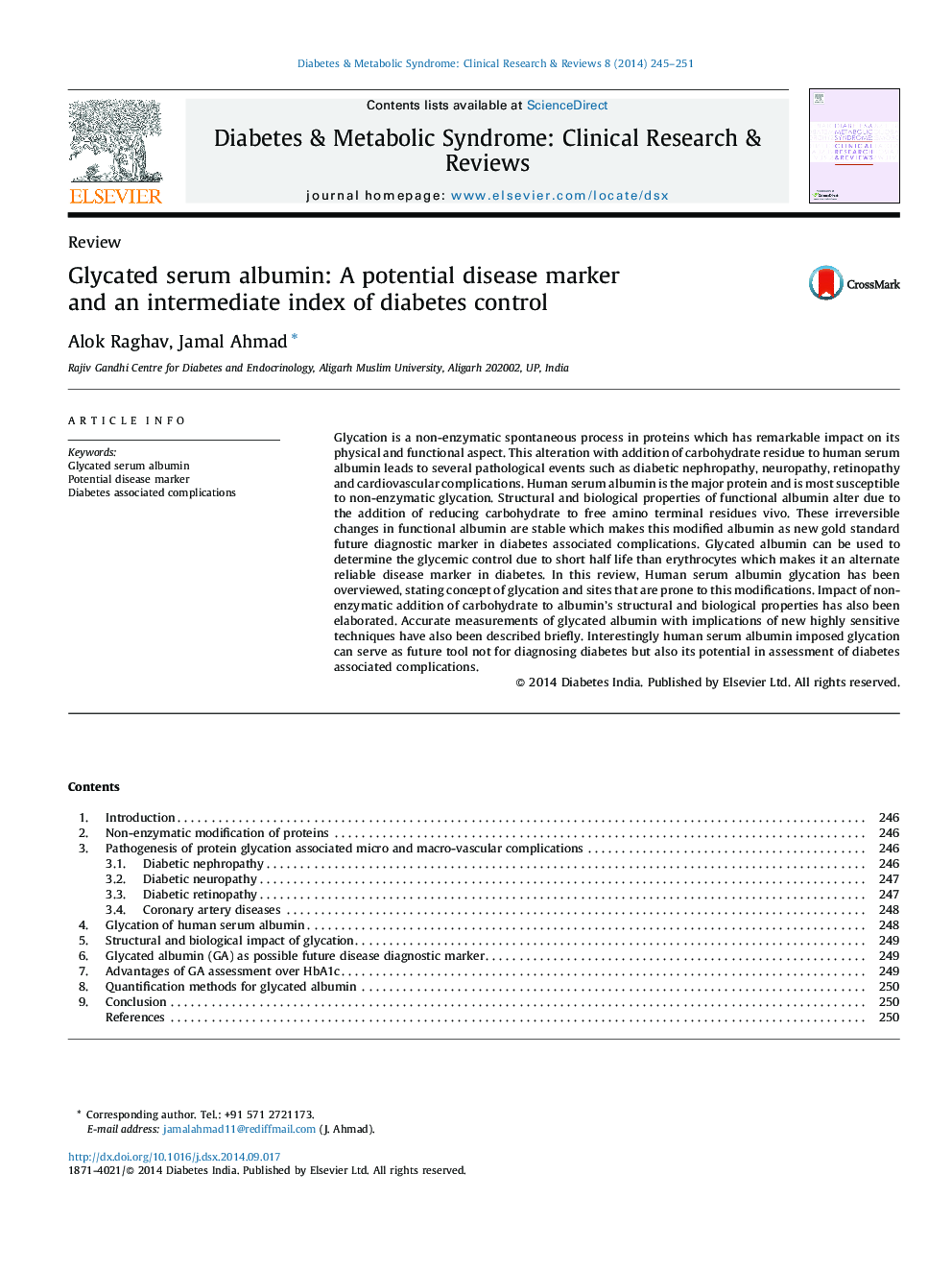| Article ID | Journal | Published Year | Pages | File Type |
|---|---|---|---|---|
| 2909884 | Diabetes & Metabolic Syndrome: Clinical Research & Reviews | 2014 | 7 Pages |
Glycation is a non-enzymatic spontaneous process in proteins which has remarkable impact on its physical and functional aspect. This alteration with addition of carbohydrate residue to human serum albumin leads to several pathological events such as diabetic nephropathy, neuropathy, retinopathy and cardiovascular complications. Human serum albumin is the major protein and is most susceptible to non-enzymatic glycation. Structural and biological properties of functional albumin alter due to the addition of reducing carbohydrate to free amino terminal residues vivo. These irreversible changes in functional albumin are stable which makes this modified albumin as new gold standard future diagnostic marker in diabetes associated complications. Glycated albumin can be used to determine the glycemic control due to short half life than erythrocytes which makes it an alternate reliable disease marker in diabetes. In this review, Human serum albumin glycation has been overviewed, stating concept of glycation and sites that are prone to this modifications. Impact of non-enzymatic addition of carbohydrate to albumin's structural and biological properties has also been elaborated. Accurate measurements of glycated albumin with implications of new highly sensitive techniques have also been described briefly. Interestingly human serum albumin imposed glycation can serve as future tool not for diagnosing diabetes but also its potential in assessment of diabetes associated complications.
